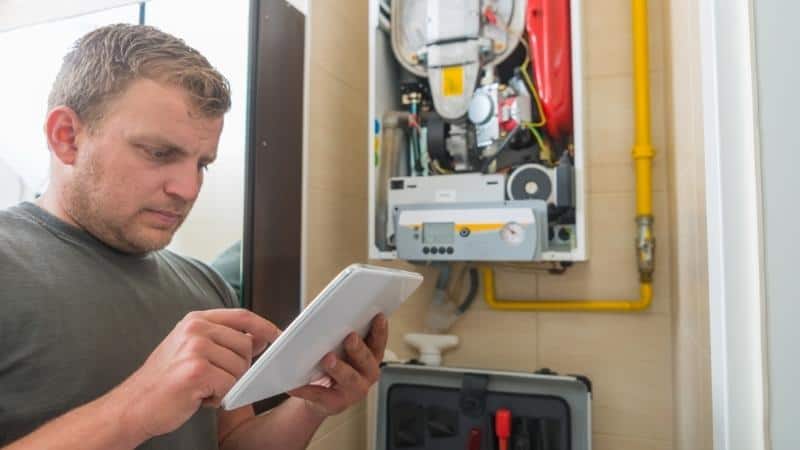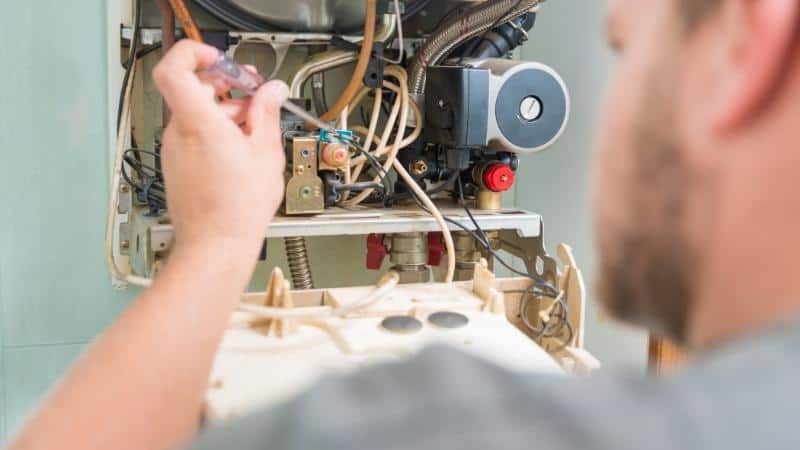Household furnaces are one of the most commonly used appliances in countries like the United Kingdom or the United States of America. That’s because winter can sometimes be unbearable there and people need the sweet warmth that a furnace can provide. But a furnace, as we know, is nothing less than a machine and a machine has its faults.
A household furnace usually runs on natural gas, a fossil fuel. Natural gases are usually odorless in their unprocessed state as they consist primarily of methane. Despite this condition, a common complaint from furnace owners is that the furnaces seldom smell of rotten eggs. Of course, there are no eggs in a furnace, then from where is this smell coming from?
Smell Near Gas Furnaces
As said before, furnaces run on natural gas which never smells. Therefore, the rotten eggs smell must be an illusion.
The good news is, it’s not an illusion. Something else burns along with the natural gas—a sulfur-based chemical known as mercaptan. Mercaptan is mixed inside the gas chamber of furnaces by utility companies and that’s what ends up burning with natural gas. This is because natural gas is an odorless gas so whenever there is a gas leakage, owners will not be able to identify it. Mercaptan burning releases the awful smell of rotten eggs which successfully acts as a warning.
Unfortunately, not every rotten egg smell means a gas leakage.

Possible circumstances of smell
1) A gas leakage is the most common scenario for any machine running on gas, where the furnace is no exception. Still, it’s never considered to be a potential possibility since furnaces are manufactured with great care. However, in case anyone should experience a persistent and strong smell of gas, the person should consider that a gas leakage. If there are imminent dangers of combustion, he or she should leave the house immediately.
If probabilities of combustion are null, then the person can turn the valve that connects the gas source off and open any windows or ventilators that are easy to open, and then leave the house. Once the person is at a safe distance, he or she can call a fire department to detect and shut down any risk of starting a fire but the company of that furnace must be contacted immediately. These companies usually provide emergency services in these kinds of situations.
2) Owners can experience smell near their gas furnaces, if the furnaces have been turned on after a significant amount of time, for example, at the start of the winter season, or when they are turned on for the first time on that season. That’s because the furnaces were unused for a long period and so the dust inside begins to burn while also reacting with the mercaptan placed inside them.
These smells are absolutely normal unless they linger—only then can be considered as an actual problem. If owners wish to avoid these smells, the ideal steps are to always keep the vents and ducts clean since the smells normally come from them or they can hire a heating technician for warming up the furnace every season so the dust would never manage to accumulate.
3) Not always an illusion but as said before, not all rotten egg smells should mean that the source is the furnace. What if the owners’ trash bins have some rotten eggs and they blame the furnace instead? It’s a very silly, yet valid possibility therefore, should always be vigilant before making a judgment call.
The gas furnace is a very useful appliance and every useful thing has its defects; this is a matter that has been normalized long ago. Relating to that, it is very much normal to smell near a gas furnace and anyone with the experience of using one will agree to that. Furnace smell does not usually pose any danger and if the symptoms mentioned above are noticed on time, then the furnace owners have nothing to worry about. All that matters is the experience itself.
